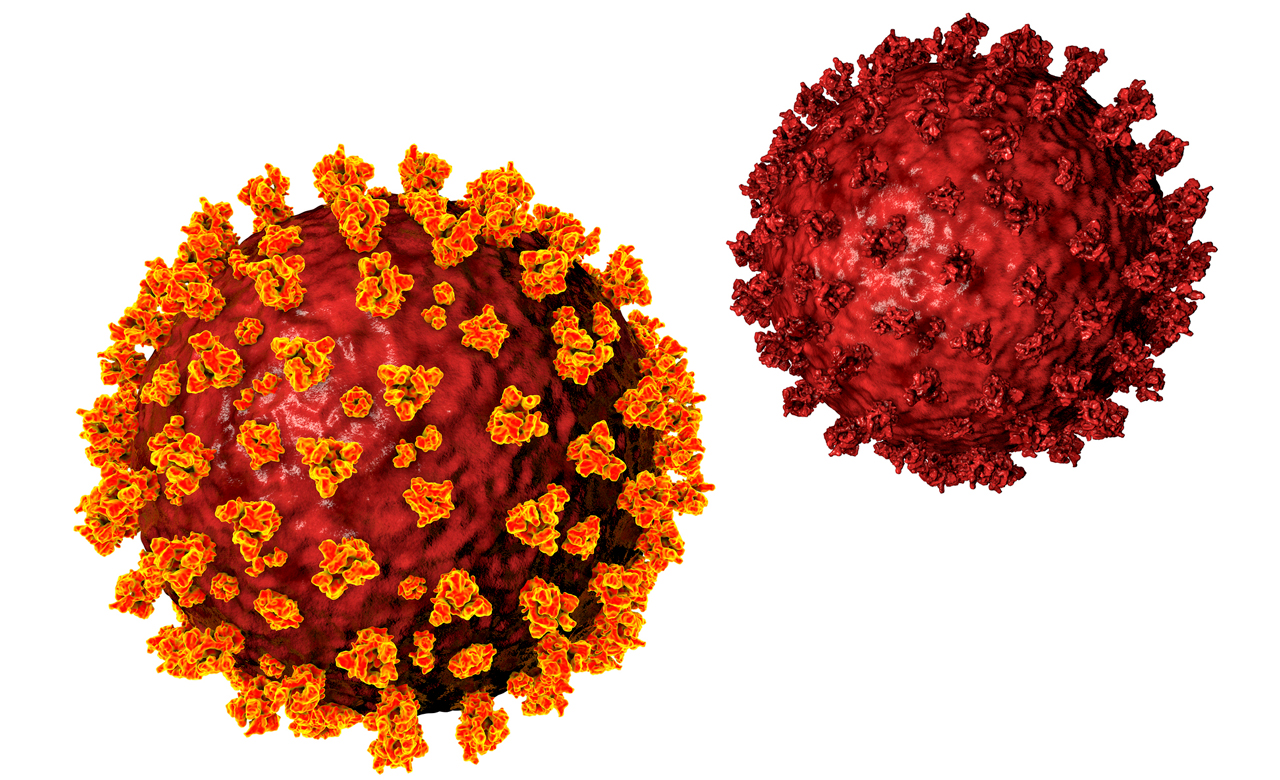Loren Bonner

Why were SARS-CoV-2 variants expected?
“Ultimately, all viruses mutate all the time,” said Scott Roberts, MD, from Yale New Haven Health.
Labs have been tracking SARS-CoV-2 since the original strain was discovered in Wuhan, China, in 2019. Viral mutations and variants in the United States are routinely monitored through sequence-based surveillance, laboratory studies, and epidemiological investigations.
From an evolutionary perspective, a virus mutates to become more transmissible, but in doing so, it becomes less lethal.
Even with SARS-CoV-2 more transmissible, “over time, the severity of COVID-19 should be less and less,” said Roberts.
What’s the definition of a variant?
Viruses constantly change through mutation. A virus with one or more new mutations is referred to as a “variant” of the original virus.
SARS-CoV-2 is an RNA virus. These viruses typically have higher mutation rates than DNA viruses.
A mutation can replace one single amino acid on the virus.
“A mutation is a change in the genetic sequence of the virus,” said Marie Landry, MD, from Yale New Haven Hospital, in a news release. “When a virus replicates, it makes numerous copies of its genome to create new virus particles. Small errors can occur that change the genetic sequence, especially in RNA viruses due to their error-prone RNA polymerases [the enzyme that makes copies of their genomes] and their poor ‘proofreading’ functions.”
What’s the difference between a variant and a variant of concern?
There are three classes of SARS-CoV-2 variants:
1. Variant of interest.
According to CDC, this is a variant with specific genetic markers that have been associated with changes to receptor binding, reduced neutralization by antibodies generated against previous infection or vaccination, reduced efficacy of treatments, potential diagnostic impact, or predicted increase in transmissibility or disease severity.
Possible attributes of a variant of interest are
- Specific genetic markers that are predicted to affect transmission, diagnostics, therapeutics, or immune escape
- Evidence that it is the cause of an increased proportion of cases or unique outbreak clusters
- Limited prevalence or expansion in the United States or in other countries
2. Variant of concern.
This is a variant for which there is evidence of an increase in transmissibility, more severe disease, significant reduction in neutralization by antibodies generated during previous infection or vaccination, reduced effectiveness of treatments or vaccines, or diagnostic detection failures, said CDC.
Possible attributes of a variant of concern (in addition to the possible attributes of a variant of interest) are
- Evidence of impact on diagnostics, treatments, or vaccines
- Widespread interference with diagnostic test targets
- Evidence of substantially decreased susceptibility to one or more class of therapies
- Evidence of significant decreased neutralization by antibodies generated during previous infection or vaccination
- Evidence of reduced vaccine-induced protection from severe disease
- Evidence of increased transmissibility
- Evidence of increased disease severity
Variants of concern might require one or more appropriate public health actions, such as notification to WHO under the International Health Regulations; reporting to CDC; local or regional efforts to control spread; increased testing; or research to determine the effectiveness of vaccines and treatments against the variant. Depending on the characteristics of the variant, additional considerations may include development of new diagnostics or modification of vaccines or treatments.
As of press time, there were five variants of concern in the United States: B.1.1.7, B.1.351, P.1, B.1.427, and B.1.429.
3. Variant of high consequence.
According to CDC, this variant category means prevention measures or medical countermeasures have not been effective in stopping the virus compared with other variants.
Possible attributes of a variant of high consequence (in addition to the possible attributes of a variant of concern) are
- Impact on medical countermeasures
- Demonstrated failure of diagnostics
- Evidence to suggest a significant reduction in vaccine effectiveness, a disproportionately high number of vaccine breakthrough cases, or very low vaccine-induced protection against severe disease
- Significantly reduced susceptibility to multiple authorized or approved therapeutics
- More severe clinical disease and increased hospitalizations
A variant of high consequence would require notification to WHO under the International Health Regulations, reporting to CDC, an announcement of strategies to prevent or contain transmission, and recommendations to update treatments and vaccines.
“We are not seeing this right now with any of the variants out there,” said Roberts.